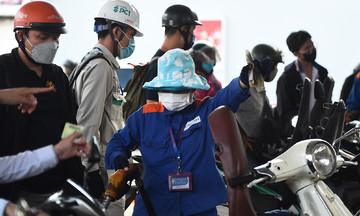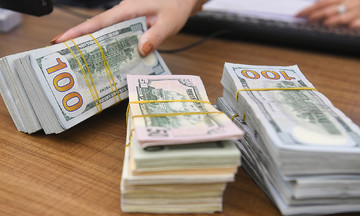The National Assembly passed a resolution on the development of an international financial center in Vietnam on 27/6, with over 93.5% of delegates voting in favor. The resolution will take effect on 1/9.
Vietnam will develop a single international financial center with branches in Ho Chi Minh City and Da Nang. The center will have unified management but develop distinct products and leverage each city's strengths.
The Ho Chi Minh City branch will focus on capital markets, banking, currency markets, a fintech sandbox, and financial innovation. It will also host specialized exchanges and new trading platforms.
The Da Nang branch will concentrate on green finance, fintech applications, and digital services. The city will also conduct regulated testing of digital and crypto assets and payments, while attracting investment funds, remittance funds, and small and medium-sized fund management companies.
Both cities are preparing human resources, infrastructure, and facilities, and are promoting investment with strategic and financial investors to build and operate the international financial center.
The resolution introduces specific policies for developing the international financial center, focusing on foreign exchange, banking, tax incentives, capital market development, finance, land, labor, and employment. It also includes policies for regulated testing of fintech services and innovation, and the development of various markets and commodity exchanges.
For example, priority investment projects within the international financial center can lease land for up to 70 years, while other projects have a maximum lease term of 50 years. Foreigners working in the center will be exempt from personal income tax until the end of 2030.
Products offered within the center will include the establishment of commodity and commodity derivatives exchanges, carbon credits, cultural and artistic products, rare precious metals, and green finance.
New priority investment projects will benefit from a preferential corporate income tax rate of 10% for 30 years, with a tax exemption of up to 4 years and a 50% tax reduction for the following 9 years. Non-priority projects will have a corporate income tax rate of 15% for 15 years, with a maximum tax exemption of two years and a 50% reduction for the following 4 years.
Dispute resolution mechanisms are also crucial for the international financial center. Parties can resolve disputes under Vietnamese law, or through foreign or international arbitration. They can also utilize the international arbitration center within the financial center, Vietnamese arbitration, or foreign and Vietnamese courts.
In a report to the National Assembly, Finance Minister Nguyen Van Thang acknowledged potential risks of speculation, price manipulation, and asset bubbles associated with establishing trading platforms. He emphasized the need for a comprehensive legal framework with robust and transparent oversight mechanisms to regulate transactions.
The government will further research regulations related to capital flow control, anti-money laundering measures, and flexible liquidity management tools, the Minister added.
Vietnam aims to establish the international financial center in Ho Chi Minh City and Da Nang in 2025. By 2035, the center is targeted to be among the top 75 globally, and within the top 20 by 2045.
Anh Minh












